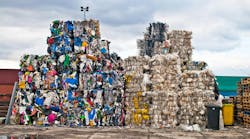Valley Proteins to Pay $1 Million in Penalties & Fees to Settle Pollution Lawsuit
Dorchester County industrial poultry rendering facility Valley Proteins will pay about $1 million to settle a lawsuit filed by the state and local environmental group.
According to The Star Democrat, the consent decree settles the lawsuit filed in February 2022 by the Office of the Attorney General on behalf of the Maryland Department of the Environment. Valley Proteins' plant often receives poultry processing waste and processes it again into components such as pet food.
Under the agreement, Valley Proteins will pay $540,000 in civil penalties and $160,000 for water quality monitoring and restoration.
The suit alleges that the Valley Proteins facility repeatedly had multiple pollution violations, which include:
- The discharge of ammonia, phosphorus and other pollutants into the Transquaking River, a tributary of the Chesapeake Bay, for over a year;
- Unauthorized discharges of wastewater, sludge and raw chicken parts;
- Failure to take steps to prevent runoff of poultry solids; And
- Dozens of air pollution violations caused by malfunctioning odor-control equipment.
The Star Democrat also reported that the illegal discharge of pollutants was also in violation of the company's National Pollutant Discharge Elimination System (NPDES) permit and state water pollution laws.
The lawsuit was filed after MDE inspections from January 2019 through January 2022.
Valley Proteins temporarily suspended operations in December and resumed operations several days after reaching a strict agreement with the environmental agency, reported The Star Democrat. During the temporary suspension, all shares of Valley Proteins were acquired by Darling Ingredients Inc. for approximately $1.1 billion.
The company submitted an additional application to renew its permit in 2014, but it still hasn’t been officially renewed.
Under the agreement, Valley Proteins will pay $540,000 in civil penalties and $160,000 for water quality monitoring and restoration.
The Consent Decree states that Valley Proteins must also:
- Correct stormwater violations;
- Conduct a groundwater investigation on the wastewater lagoons leaking pollutants, and if leaking must stop it and remediate the contamination; Upgrade its existing wastewater treatment system to address effluent violations;
- Conduct stormwater sampling; And
- Investigate and implement improvements to address odor pollution beyond the facility’s property line.
Valley Proteins is required to pay the citizen’s groups their attorneys’ fees and reimburse past and future costs, which costs over $250,000. Additionally, the company will pay $135,000 into the Transquaking River Watershed Fund.
“Valley Proteins repeatedly discharged harmful pollutants including nitrogen, phosphorus and fecal coliform into a tributary of the Chesapeake Bay,” Maryland Attorney General Brian Frosh said in a statement. “These violations of our environmental laws threatened fragile ecosystems and our treasured Chesapeake Bay. This settlement and hefty penalty sends a strong message to Valley Proteins and others that they are not free to pollute Maryland’s waters and air.”
“It took a team of nonprofits, including the Chesapeake Legal Alliance, to finally force MDE into taking a strong position to protect water quality from one of the State’s worst permit violators,” said Matt Pluta, director of riverkeeper programs at ShoreRivers. “We will remain vigilant in the coming months and years to see that the terms of the consent decree are followed and that any future discharge permit includes the necessary conditions for improving local water quality.”
“We regard this consent decree as a potential first step toward reducing the illegal discharges from Valley Proteins that have for years degraded the Transquaking River and threatened public health in the watershed,” said Fred Pomeroy, president of Dorchester Citizens for Planned Growth. “Now, we call on Maryland’s Department of the Environment to produce a strict new operating permit for the facility which will actually contribute to restoration of the river. Markedly improved water quality downstream from the [Valley Proteins] operation will be the ultimate test of the effectiveness of this agreement.”MDE is now in the process of determining the conditions that will be included in a final renewal discharge for the plant, according to a press release from the Office of the Attorney General, reported The Star Democrat. This permit is expected to be issued within the next 60 days.
The organization will also work to ensure that the new discharge permit from MDE does not grant Valley Proteins the option to increase its discharge without proving that they can operate without violations.


